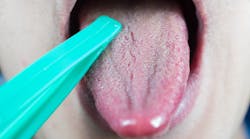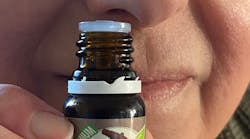Biology of health and taste
Problems with the sense of taste can act as an early indicator of health decline, impending mortality, as well as signs of frailty in the brain and unhealthy aging. Taste sensitivity is the ability to detect salt, sour, sweet, bitter, and umami. As with most senses, taste can weaken as we age. Peripheral senses such as taste may, according to this research, predict an increase in all-cause mortality.
Smell and health study
A recent study examining 7,340 participants from early adulthood to mid-late adulthood with a follow-up of about seven years looked at risk of mortality and correlated it with the ability to taste sour, sweet, bitter, and salt.1 Those with taste loss had a 47% higher risk of all-cause mortality. Specifically, self-reported loss in ability to taste salt (multivariable adjusted HR, 1.65; 95% CI, 1.21-2.26) and sourness (HR, 1.69; 95% CI, 1.19-2.40) was associated with increased mortality. Additionally, this study found that patients who still had a sense of smell who had taste loss were still at a higher risk for all-cause mortality when compared to counterparts without taste loss. Other studies have found that both ability to recognize a smell (olfactory identification) and ability to detect smell (olfactory sensitivity) were risk factors in predicting health and risk of health decline.2
What can the dental profession do?
Keeping an eye on sense of or diminished taste may serve as an influential biomarker and risk factor for health decline. Taste perception should become an integral part of dental clinical care for aging people who are polypharmic and/or have chronic diseases. A simple taste test, administered by a dentist or hygienist, that takes only minutes could potentially be used as a valuable tool to assess the risk of unhealthy aging. Individuals who fail a taste test may need to improve their nutrition or be referred for a more detailed neurologic or medical workup. In addition, taste tests may be able to enhance clinical and research efforts in improving care for middle-aged and older adults.
Editor’s note: This article originally appeared in Perio-Implant Advisory, a chairside resource for dentists and hygienists that focuses on periodontal- and implant-related issues. Read more articles and subscribe to the newsletter.
References
- Zhu R, Wang R, He J, et al. Perceived taste loss from early adulthood to mid to late adulthood and mortality. JAMA Otolaryngol Head Neck Surg.2025:e245072. doi:10.1001/jamaoto.2024.5072
- Nagururu NV, Bernstein IA, Voegtline K, Olson S, Agrawal Y, Rowan NR. The association of peripheral and central olfaction with frailty in older adults. J Gerontol A Biol Sci Med Sci. 2023;78(7):1276-1283. doi:10.1093/gerona/glac237
About the Author

Scott Froum, DDS
Editorial Director
Scott Froum, DDS, a graduate of the State University of New York, Stony Brook School of Dental Medicine, is a periodontist in private practice at 1110 2nd Avenue, Suite 305, New York City, New York. He is the editorial director of Perio-Implant Advisory and serves on the editorial advisory board of Dental Economics. Dr. Froum, a diplomate of both the American Academy of Periodontology and the American Academy of Osseointegration, is in the fellowship program at the American Academy of Anti-aging Medicine, and is a volunteer professor in the postgraduate periodontal program at SUNY Stony Brook School of Dental Medicine. He is a trained naturopath and is the scientific director of Meraki Integrative Functional Wellness Center. Contact him through his website at drscottfroum.com or (212) 751-8530.


